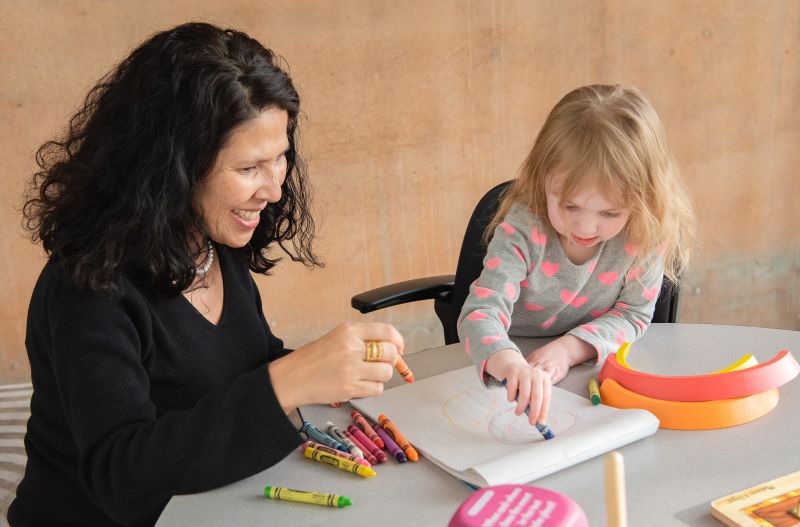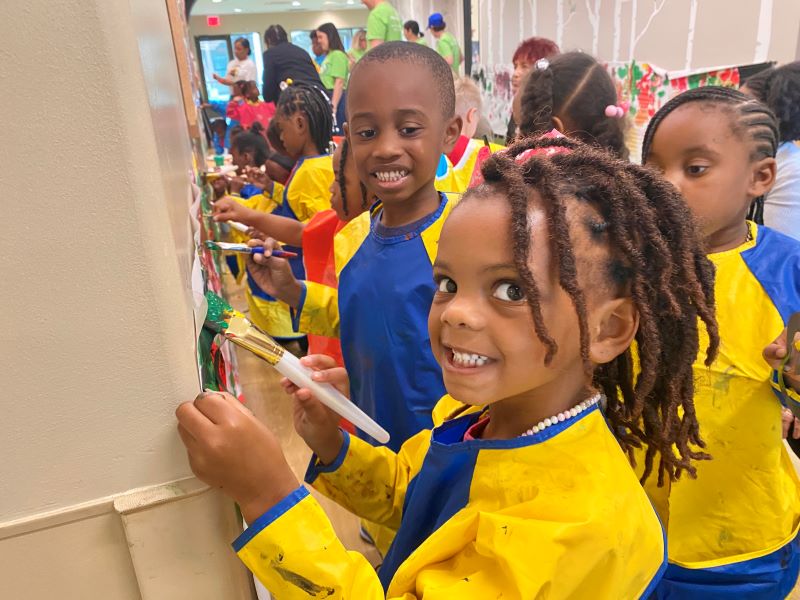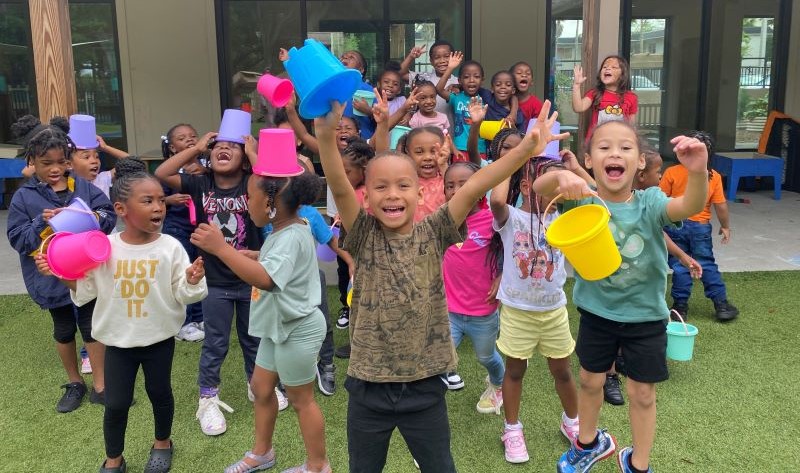Today, the TIPS ECHO connects pre-school educators with trauma-informed caregivers to provide advice, counsel and support for the youngest members of underserved communities across the nation.
LaTrice L. Dowtin, Ph.D., a clinical psychologist and CEO at PlayfulLeigh Psyched, a telehealth-based clinic, and co-lead for the TIPS ECHO Program, says her passion for serving young children and families is founded in a trauma-based perspective.
“There are lots of different types of traumas that occur in a child’s life, like poverty, which can expose children to other risks like health, social, emotional, and developmental needs,” says Dowtin. “We have an opportunity to support and reach people that are in those communities – those teachers, those directors – and share our knowledge and experience in support of children. Not just in my neighborhood but people across this country.”
Connection through Adversity
Alfreda Clark, director for the West Lakes Early Learning Center in Orlando, FL, says that TIPS ECHO was perfect for her team’s needs.
“What made it unique is that Project ECHO’s effectiveness was proven in rural communities and communities where families were typically under-resourced,” says Clark. “They created a community of practice from a body of experts who worked with children in a variety of ways. Having all that rich history in one space come together and look at specific challenges or areas for improvement just made sense to us.”
Clark shared that connecting with other educators and understanding that they’re facing similar challenges and concerns was reassuring. “In terms of what really stood out to me in one of our sessions was self-regulation is a learned phenomenon. That’s something that we can teach and share and help children expand and grow on.”
“The pandemic pulled back the curtain on so many children who were dealing with stress and trauma,” says Clark. “While kids can do well in the classroom, when they go home, they could be reentering a stress-filled environment, so starting every day with a clean slate is critical. It’s not a one-and-done, it’s more of a process, and we are discovering that pathway together.”
“TIPS ECHO allows participants to speak with people across the country having similar issues and understand how to make classrooms, schools and relationships with one another more trauma-informed,” says Dowtin. “We’ve received wonderful feedback about that collaborative piece. They see that other people are experiencing similar challenges.”
Leaning In
Jimmy Venza, Ph.D., a licensed psychologist and executive director of The Lourie Center, says the TIPS ECHO a response to a call for help.
“For years, school systems and early learning centers have been coming to us to ask for support in better helping young students who were showing signs of trauma and disrupting the learning environment for the educators and other students,” says Venza. “The intensity of the outbursts and frequency had grown pre-COVID and now has continued to spike as the infants during COVID now land in preschool with more complex social and emotional challenges.”
As the number of requests for help from the Lourie Center continued to grow, the organization initially didn’t have the staff to help provide the trauma-informed practice training needed. Their multi-disciplinary teams were fully focused on the intensive therapeutic and education work for the Lourie Center’s core service delivery programs. How could they move their knowledge and practice out to communities in need? That’s where the partnership with Project ECHO came in.
“At Project ECHO, we’re deeply focused on the ‘how.’ Knowing about trauma-informed practices isn’t enough—educators need space, support, and time to integrate that knowledge into daily routines and relationships,” says Soraya Gollop, Ph.D., director of education for Project ECHO. “The TIPS ECHO program offers that sustained support. It’s not about delivering expertise from the outside in; it’s about walking alongside educators as they build trauma-responsive classrooms that work for their unique communities.”
The ECHO Model enables mentoring, case-based learning, and regular feedback loops, helping educators gain confidence and support to apply trauma-informed approaches in real time, not just understand them in theory.
Building Community
Venza notes that the ECHO Model helped scale the Lourie Center’s expertise further than they could have imagined, moving evidence-based practices from theory into daily use. And with trauma remaining one of the biggest concerns for elementary school principals, the need only continues to grow. By using Project ECHO’s all-teach, all-learn model, Venza and his team hope to strengthen educator resiliency in the face of adversity and trauma in the classroom and improve the lives of their students and families. The TIPS ECHO program doesn’t just share trauma-informed best practices—it supports educators in implementing them.
By building a community of support to better understand what trauma looks like in a preschool classroom, Venza says TIPS ECHO participants learn how best to respond to traumatic situations, leading to safety, healing, and learning.
“Importantly, TIPS ECHO seeks to empower the early learning workforce and ensure they have the support needed to stay in the profession, build their skills, and be an inspiration to their students and colleagues,” says Venza. “We plan to scale TIPS ECHO to new communities within the U.S. and then expand globally over the next five years.”
For more information about the Trauma-Informed Preschool Support ECHO Program, email Alan Mark Ezagui, MHCA, at the Lourie Center for Children’s Social & Emotional Wellness.
Featured Image Credit: Lynn L’Esperance for Project ECHO, March 2022.



